|
In the video reflection below, Project Coordinator Brian Rhude reflects upon Pentecost, its Biblical precursor in the Book of Genesis, and what the feast can tell us about our call to evangelize as Missionary Disciples.
0 Comments
“Out of darkness, God has called us, claimed by Christ as God’s own people. Holy nation, royal priesthood, walking in God’s marvelous light.” -Christopher Walker, Out of Darkness At some point or another, almost everyone lives in one kind of darkness. For some, that darkness can come with the loss of a loved one or a job. For others, darkness can creep into our lives when we move for a job, start college, have an unexpected medical diagnosis, or just seem to have everything go wrong in our lives. Right now, we are all living in the shadows and darkness of another kind—one that includes loss of life and jobs, but that is also much more. The current pandemic seemingly brought darkness upon the world just as we got ready to celebrate the Sacred Triduum, three days that culminate in our proclamation that Christ is the light of the world. The darkness, for many, is made even darker without being able to go to church, without a physical community of faith, and without the reception of the Eucharist. And yet, as St. Peter said in his epistle, we are all “‘a chosen race, a royal priesthood, a holy nation, a people of his own, so that you may announce the praises of him who called you out of darkness into his wonderful light.” (1 Pt 2:9). We are called to live in the light, not in the darkness that we find ourselves in. Right now, that may seem impossible. The light seems to be out without a definite end in sight. , I have been lucky over the past few months to be not only living in community, but to also have regular access to the celebration of the Eucharist. Mass is celebrated daily at the seminary, so my own personal darkness does not include the absence of a community or the sacraments. For me, darkness creeps in as a result of not being with those I love. I couldn’t go to visit my family in New York in between the end of the semester and the beginning of my summer assignment. I am limited to phone calls here and there with those I love, and the occasional FaceTime video with my goddaughter and her brother. This has been my own personal cross to bear, but it’s one that I know has made me appreciate the people in my life more than I did before the outbreak of the novel coronavirus. But there are other things that are hard too, especially right after Archbishop Aymond suspended public Masses in New Orleans. Other things such as this have entered into my own darkness and tried to snuff out the light of Christ. In the Eucharistic liturgy, right before the distribution of Communion, the priest, holding the Body and Blood of Christ, says “Behold the Lamb of God. Behold him who takes away the sin of the world. Blessed are those called to the supper of the Lamb.” But, right now, those called to the supper of the Lamb can’t come. To pray this prayer, to hear this prayer every day, is not easy to hear while many of the people of God aren’t able to be nourished through the Eucharist. This chosen race is wandering in the desert, seemingly alone. And yet, Jesus is there with us in our tombs. He is there with us in our darkness. He is there with us--waiting to bring us out of that darkness into the wonderful, marvelous, light. God is with us even if we can’t seem to pray right now. God is with us even if we can’t receive him physically right now. God is with us even if all we can do is yell and cry with despair and loneliness. God is always with us, preparing the dwelling place for us, his chosen race, his royal priesthood. And so, as we dwell in our darkness, let us remember that we are made for more. We are made to live as the children of the light, not as the children of the darkness. Jesus entered the tomb as a dead man and walked out of it alive. Let us pray, in a special way, asking Jesus to enter our darkness. That we, his chosen race, his holy people, his royal priesthood, may no longer dwell in darkness, but in his wonderful light. Out of the darkness of missing the Eucharist, God is calling us. Out of the darkness of loneliness, God is calling us, for we have been claimed by Christ. Out of the darkness of uncertainty, God is calling us, for we are his own people. Out of the darkness of sadness, God is calling us, for we are to live in his marvelous light “Out of darkness, God has called us, claimed by Christ as God’s own people. Holy nation, royal priesthood, walking in God’s marvelous light.”
“What can I do?” The question reverberates within us while we stay home during the COVID-19 pandemic. To stay home often implies inaction, disengagement, fear. However, staying home during this unprecedented time is one of the most charitable actions we can make. To stay home is not to surrender or turn inward, but to care so much for the greater good that we are willing to make sacrifices to our daily life in order to protect our neighbor. This calls for a radical mentality shift. As human beings, we have a tendency toward action. Even on a scientific level, the world is constantly in motion. Human beings want to do something with the hands given us and the breath in our lungs. We want to act. And in times of crises, we want to help. Perhaps this is more urgently felt by people of faith; it is intertwined in our very identity as baptized persons and is a living, breathing part of our spiritual life. We live out of the reality that “faith…if it does not have works, is dead.” So during a time when one of the greatest acts of charity we can physically do is stay at home, we still find ourselves asking “what can I do?” The good news is, we can still “do” a lot. With the corporal and spiritual works of mercy as a guide, I’ve compiled a list of ten ideas for alleviating suffering and spreading the Gospel during the novel coronavirus pandemic.
There are many ways we can live the corporal and spiritual works of mercy during this outbreak of COVID-19. What are some others ways you have shared the Good News and brought love and joy to others during this time? Click here to learn more about the Corporal and Spiritual Works of Mercy. It was my spiritual director who first introduced me to the phrase new normal which has since become quite common in the days of COVID-19. At the time I learned this phrase, my Dad was sick, the situation was changing by the day, and my spiritual director shared a piece of wisdom with me: clinging to the past with no regard to where we stand in the present, let alone where we will stand in the future, is of little good. This doesn’t mean that we can’t look back fondly on memories and experiences—we should—but sometimes it’s necessary to shift our gaze from what was normal to what is our new normal. Turn on the news and we’re bound to hear this phrase mentioned. The elimination of handshakes, added temperature screenings before flying or entering large venues, social distancing—these are all changes that are tossed around as potential aspects of our new normal. Inherent to the new normal is grieving the loss of what used to be normal. On a recent podcast, Brené Brown, a research professor and speaker, spoke with David Kessler, an author and expert on death and grief, about how we, as a world, are collectively grieving during COVID-19. Their first premise is that we must name our grief before we can take it on. As we look to a new normal, we will likely find ourselves grieving many of the simple acts we might have taken for granted. So many of these aspects of our new normal are so far into the future and so uncertain that it might not be fitting for us to focus on them for too long lest we begin to fear for something not even guaranteed for the future. That doesn’t mean that we are not still mourning the loss of our normal and experiencing a new normal every single day. I celebrated my best friend’s birthday last week by sitting 12 feet apart and talking from a distance without even being able to share a hug. For those who have loved ones in hospitals or nursing homes, the difficult and sometimes downright terrifying new normal is not being able to visit them, to comfort them, or to be comforted ourselves. Our new normal might include grieving not being able to go to the store because it’s closed or because we are considered high risk if we contract the virus. In one way or another, we are all facing a new normal, but we must fight the urge to compare whose new normal is worse or more challenging. The necessity to find a new normal isn’t new in itself. After 9/11, we were also forced into a new normal. The same occurred after World War I, World War II, the Spanish Flu, The French Revolution, and the Great Plague which all forced society to adopt a “new normal”. A new normal, however, doesn’t have to be a bad thing. The printing press, the steam engine, and the discovery of penicillin all created a new normal that we are thankful for. Of course, the greatest events which created a new normal were the life, death, and Resurrection of our Lord, Jesus Christ. Think of the Apostles, such as James and John, who were called from a fishing boat to follow Jesus. Their entire conception of normal changed forever in that instance. As our Lord hung from the Cross on Good Friday, the world (especially that of the disciples) faced a new normal. How dejected afterwards were the two on the Road to Emmaus with their new normal, one that seemed to go on without the man they had come to know as the Messiah? Then of course, Jesus rose on the third day; He had defeated sin and death, and an eternal new normal was ushered into the world. That is the new normal which we can turn to in every moment when our lives are forced into a new normal we may not have asked for. Jesus Christ, God made flesh, He who was and is and is to come, gave all of creation a new normal which rings eternal. Nothing that happens in our world can change what He did for us in His life, death, and Resurrection. We are faced with a constantly changing new normal and we have to name our grief and understand that some of what we once knew is no longer our normal. In doing so, may we always be rooted in Christ who stands above the chaos as the rock of our salvation.
The world has been immersed in this COVID-19 pandemic for several months now, and as we endure the troubles it causes I am inspired to pray more ardently for us all. This is new territory we are traversing. Some are working from home, some are furloughed from businesses that are temporarily closed, some are working on the front lines as first responders and healthcare professionals, some are children being schooled at home. Gatherings and events are postponed indefinitely. We are ordered to ‘shelter at home’ unless we need to seek medical help or purchase necessary household supplies. Our normal routines have been severely disrupted and we are stressed with the new responsibilities of performing our duties on the home-front. Families with children struggle to figure out distance learning and creative ways to incorporate recess and physical activity into their schedule. Adults are untangling the nuances of setting up home offices with all the technical details this entails. The elderly combat the loneliness of being shut in and away from interaction with their loved ones. Households with people working in healthcare or essential jobs attempt to grind out a safe coexistence with other members of their home. All of us endeavor to carve out a new schedule for our days in lock down. During this time that I am on leave from my work due to the shut-down, I am impelled to pray for the relationships of all those affected by this situation. I use an adaptation of 1 Corinthians 13 as a model to pray for those I am in house with: Be patient with __________________ Be kind to ___________________ Don’t be jealous of _________________ Don’t be boastful around ________________ Don’t be arrogant towards _________________ Don’t be rude with _____________________ Don’t insist on your own way with _________________ Don’t be irritable with ____________________ Don’t rejoice at wrong in ___________________ Rejoice at right in ___________________ Bear all that ____________________ presents to you Believe in ___________________ right heart Hope for the best in _____________________ Endure all for ____________________ When I pray these verses and insert the name of my husband and each of my children, my attitude of frustration is redirected, my heart softens to gentleness, and I am brought into God’s will for these relationships. This is important work we are called to engage in during this time. We are given the wonderful opportunity to embrace the grace of the Holy Spirit so that we may suffer well through this crisis. In the middle of turmoil and all sorts of troubles, we can choose to see the good that God can bring and live in the knowledge that we are not separated from His love. How beautiful that is to ponder! Romans 8:31-32, 35- 39 confidently professes to us all: “If God is for us, who can ever be against us? Since he did not spare even his own son but gave him up for us all, won’t he also give us everything else? Can anything ever separate us from Christ’s love? Does it mean he no longer loves us if we have trouble or calamity, or are persecuted, or hungry, or destitute, or in danger, or threatened with death? No, despite all these things, overwhelming victory is ours through Christ, who loved us. And I am convinced that nothing can ever separate us from God’s love. Neither death nor life, neither angels nor demons, neither our fears for today nor our worries about tomorrow – not even the powers of hell can separate us from God’s love. No power in the sky above or in the earth below – indeed, nothing in all creation will ever be able to separate us from the love of God that is revealed in Christ Jesus our Lord.” This promise stands firm and keeps me rooted in persevering in faith through great personal hardship. The distress of isolation, the difficulty in managing new routines, and the misery of being restricted from gathering with others are all huge trials for us. But we have an Almighty God who conquered a cruel death on the cross to allow us to enter into union with Him and His Father in heaven for all eternity. This reality draws me ever closer to Him in prayer and devotion. While I cannot gather with my parish family at the celebration of the holy Mass, I can connect with other priests all over the country as they livestream daily and Sunday Masses. Today I was afforded the occasion to sit with my husband and dog in our family room and enter into Mass at the Cathedral of St. Joseph with Bishop Donald DeGrood of Sioux Falls, South Dakota. It was a powerful feeling of connectedness to the greater Church family in another part of the country. We need only to search on our digital devices to find numerous ways we can connect as a Church and remain at a safe distance. So, let us go into this new day with enthusiasm and joy that God is with us through all things. May this be a fruitful time of growth in holiness as we welcome His grace to suffer well this trial. Although our churches are eerily silent and empty, our praise and worship cries out from our individual homes and binds us together. We are the Church!! “Create a pure heart in me, O God, and put a new and loyal spirit in me. Do not banish me from your presence, do not take your Holy Spirit away from me. Give me again the joy that comes from your salvation, and make me willing to obey you.” Psalm 51:10-12 “Always ask the Spirit what Jesus expects from you at every moment of your life and in every decision you must make, so as to discern its place in the mission you have received.” -Pope Francis, Gaudete et Exsultate, 23
Have you ever prayed a novena? Some people might find such a thing out of fashion, but it is making a return among a number of Catholics. For some, the practice never left. For nine years, as pastoral director of St. Jude Shrine in Baltimore, Maryland, I led weekly novena prayers on Wednesdays and Sundays during the perpetual novena in honor of St. Jude, patron of hopeless cases. The custom of praying a novena, usually nine days of prayer, arose from the liturgical period of nine days between the Solemnity of the Ascension of the Lord and Pentecost Sunday. (In recent years, many dioceses have moved the Solemnity of the Ascension from Thursday to the Sunday before Pentecost.) This liturgical time marks for us the period between when Christ ascended to the Father and the sending of the Holy Spirit on the Blessed Virgin Mary, the Apostles, and the disciples. The Risen Christ gave his followers a mission. He told them to “Go”. But go and do what? “Make disciples of all nations, baptizing them in the name of the Father, and of the Son, and of the Holy Spirit” (Matthew 28:19). They did not go immediately, but instead were looking at the sky. They were confused. Then they went into the Cenacle or the Upper Room, prayed and discerned together. They were not ready to go forth on mission for Christ. When the Holy Spirit came at Pentecost, they received the boldness to preach and to heal in the name of Jesus Christ. Only then did they accept their being sent by Christ. As Christ sent them, so he sends us. St. Vincent Pallotti taught, as did the Second Vatican Council, that the baptized are sent into the world as apostles of Christ. In word and deed, our world needs to hear proclaimed that God is love, Christ saves, and Christ is alive (Christus Vivit, chapter 4). This is the initial proclamation of the Good News or the kerygma. When people encounter us, do they encounter Christ? Do we accompany them into greater faith in him? Are they welcomed into the community of faith, the Church? Do they realize that they, too, are sent? (cf. Living as Missionary Disciples, Part I). We do none of these works alone. We are dependent on the Holy Spirit. As Pope Francis teaches us, “When you receive the Spirit, he draws you ever more deeply into the heart of Christ, so that you can grow in his love, his life and his power (Christus Vivit, 130). The Holy Spirit will guide us in our discernment and in the mission that we have been given by Christ. May the Charity of Christ urge us on!  This Easter season, I have been thinking a lot about my late brother Tim, who died in an accident seven years ago - at the age of 24 - while serving as an EMT in Indianapolis, IN. Tim’s death, along with the death of his IEMS partner Cody Medley, left all their friends and families at an inestimable loss. While I never got to meet Cody personally, I have learned that he was an exceptionally driven and talented young person who also served as a fire cadet before becoming a paramedic. Tim’s story is not much different; he was an Eagle Scout and volunteer EMS before going professional and passing his paramedic certification shortly before he died. In life, Tim achieved success in almost every field. As a teenager he won academic and musical scholarships and posted regular five-minute miles in outdoor and indoor track. He mastered Mandarin and spent an immersion summer in Shanghai. He participated in a service trip to Jamaica and volunteered back home as a “running buddy” alongside students with special needs in Central Park. These successes, paired with his later commitment to the medical profession, truly made him “A Man for Others” – the Jesuit motto of his alma mater, NYC’s Regis High School. Only looking backwards have I come to appreciate how brilliant Tim was. Perhaps you have a similar person in your family – someone who is so smart that they are intimidating. Tim was fearless in challenging others (especially those in authority) when he thought they were wrong. I have thought of him throughout this entire pandemic. As a first responder, I know that he would be helping wherever help was needed. As the outspoken person he was, I know he would have choice words for those he felt were ignoring public safety protocols. And most of all, as a cuttingly funny person, I know he would help me laugh during this time. Tim died three days into Lent, on February 16th, 2013. I have remembered him especially during every Lent and Easter since then. This past Lent was perhaps the most difficult yet. Many say that it takes seven years to heal from losing a loved one. The year 2020 marks seven years for all who loved Tim. To me, I felt healing – which also meant letting my guard down to feel fully the pangs of loss I couldn’t afford to feel in 2013. The coronavirus situation, if nothing else, has clarified the relationship between life and death. We are all vulnerable humans. This can be a scary thought, but also a freeing one. This can be a time to meditate on life as what it is – a short chance to grow, love, and serve others. We do not know how long the journey will last. I sometimes think that my brother attacked life the way he did because he might have sensed that he had less time than others. He used to wake me up after midnight, for instance, after I had already gone to bed, and say “Come on bro, get up, let’s make some memories.” At the time I thought he had a screw loose. Now I think he was prophetic. Recently in the Gospel readings, we hear Jesus tell the disciples, “Peace I leave with you; my peace I give to you. Not as the world gives do I give it to you. Do not let your hearts be troubled or afraid.” These words are a balm to all of us who have experienced loss, or who fear loss during these challenging times. As I read this passage, I am touched by the care and concern Jesus shows for his followers. He is also being quite honest with them and reminding them that they will lose him. The promise of peace is made realer by the reality of loss. This is what I receive from today and feel to be true in my own life. One year after Tim’s death, on Easter Sunday 2014, my family went to Mass in a church we had never been to before. The previous year had been difficult for everyone. Personally, I had not been taking care of myself mentally, physically, or spiritually. In the prior twelve months, I had not felt anything approaching peace. I was experiencing great fear and having awful panic attacks. That morning, sitting in the pews, waiting for Mass to begin, I suddenly noticed all sound around me fade out. I felt a sensation of all the breath leaving my body – and then my next breath was a slow, purposeful breath that was like drinking cool water in the desert. I was able to begin breathing in a deep and rhythmic way. Over the next few minutes, I felt as if warm light was streaming over me, from the head down. It was a feeling of complete release and relief. Ever since, I’ve been hoping to feel that peace again. Like my brother, I doubted (and still doubt) aspects of my faith. Tim wrestled to understand people who believe that faith and the intellectual life are incompatible. Being the true original that he was, I think he found it difficult at times to imagine a place in Christianity where he fit in. Yet after his death, I learned that some of Tim’s recent writings and reflections expressed the faith of a mature man who trusted in a loving God. I reflect on his words often as I remember my “kid brother” - who responded to numerous life-or-death situations and treated severe injuries which I would be terrified to walk into. Like everything else, Tim’s faith journey happened at a rate and intensity that most of us will never know. As Easter moves on and we navigate the new normal that is COVID-19, my spiritual suggestion (for what it’s worth) is this: In your prayers, dreams, and doings, try to let fear and hope co-exist. I will try to do the same. If we can hold those two seemingly irreconcilable opposites, we may find that peace can sprout like a flower right in between our hands. As I write this on May 9, it has been 54 days since the Diocese of Rockville Centre on Long Island, New York suspended all liturgies, devotions, meetings, and non-essential activities in parishes. This was the second major announcement for our parish family in East Patchogue in a 3-week period. At the beginning of March, our Capuchin Province of St Mary announced that we will be withdrawing our friars from the parish this summer. So, not only would we be without public Masses, we wouldn’t even have a chance to grieve our departure with the community. And if that wasn’t enough, only four days after beginning to stream Masses on Facebook Live, our pastor tested positive for COVID-19. This development put a halt on our community’s ability to be in common spaces and thus ending the live communication with our parish family. Although I tested negative, the four of us friars isolated ourselves in our rooms, staggered our meals for 45-minute periods three times a day, and wore masks and gloves any time we shadowed the friary halls. Many parishioners were asked to self-quarantine as well since they had come in contact with our pastor at Masses the previous weekend. During this time, several faithful parishioners passed away, both COVID and non-COVID related deaths. We couldn’t assist at their burials. We couldn’t anoint or reconcile those who requested the sacraments. In a word, we felt helpless. Unfortunately, one of our senior friars living here began experiencing symptoms. I needed to drive him to be tested for the virus, exposing myself again. He tested positive and a few days later was admitted to the hospital. With two days remaining in my 14-day isolation period, the count turned back to zero. As a community, for 34 days we never gathered, prayed, shared a meal, or even saw each other for more than a moment. I don’t share this with you so that you may feel bad for us or think how strong we are, because we all have our stories of how life is different now. For our parish community, the time in isolation in the midst of an impending transition and a world-wide pandemic offered us priests an opportunity to do what we could do rather than what we would do. The Code of Canon Law states, “in order to fulfill his office diligently, a pastor [& his vicar] is to strive to know the faithful entrusted to his care” (Can. 529 §1). The Code offers specific tasks of a pastor so that he can know his “flock,” almost all of which no one on Long Island is permitted to do at this time. Because of this, many suffer. They endure loneliness in the midst of death without a proper funeral Mass for a loved one. They crave the Eucharist and long to be in His presence in Adoration. They yearn for the words of absolution of their sins. Parents of children making First Communion and Confirmation wonder uneasily when their child will receive the sacraments and how that will be done. The fact is, we share in their suffering. We share in their suffering using the communication tools at our disposal in two ways: The first is the use of the telephone and visual communication. We listen to our parishioners’ emotions, encourage them to pray, and offer a joke now and then. For us, this has been our most effective ministry to personally “know” our parish family during this time. I also have a weekly Sunday Mass for friends and family from literally the four corners of the country (Maine, Alaska, San Diego, and Tampa). A simple call brings tremendous light into the darkness many experience in these times. Secondly, our lives as Christians, particularly in ministry, can often be characterized using Martha and Mary’s example (Luke 10). In a parish setting, Martha’s example of service tends to be the model. We as ministers have had a unique opportunity to partake in Mary’s ministry of contemplation. With time not often available, God has provided this opportunity to sit at Jesus’ feet to listen, pray, ponder, reflect, petition, grieve, laugh, cry, and wonder. In a time of uncertainty and pain for our little parish, it’s the best thing we can offer them. As Christians, we know that suffering is inevitable. It’s the cross. But, if the story ends there, we aren’t Christians. Because from death came life. From the brokenness, the sadness, even despair, life abounded in the Risen Lord. We, as Christians, MUST witness to this. We, as parish families, do not suffer alone. We suffer together. We suffer with Christ. We may at times feel helpless, but never hopeless. *a final note to say that everyone in our local friary is now healthy. My favorite things to eat are sweet treats. Chocolate any-sort-of-way is my snack of choice. I love it! During this quarantined time at home, I’ve found myself baking and eating all kinds of delicious foods and sweet treats. The end result (besides having a belly full of tasty cookies and cakes) has been enjoying these treats together with my family like a little “ritual.” Every night, there is a delicious baked-good in the house that my husband and I look forward to enjoying together. I’ve found comfort in this time together, and it’s something I want to hang onto even after quarantine. My husband and I sit back, unwind with conversation or some TV, and enjoy a yummy treat together on the couch. One might even call it our quarantine tradition! Baking over these past few weeks has brought another level of joy for me apart from devouring the finished product. Baking in the kitchen brings me joy during this time: I decide what delicious treat to make, assemble all the supplies, read each step closely and carefully, get each ingredient measured just right, and wait patiently for it all to bake. I’m not a very meticulous person when it comes to cooking and baking, but baking with recipes has been a newfound joy that fills my heart. The patron saint of bakers and pastry chefs is St. Honore, whose feast day was just on May 16th. He was a 6th century bishop in France who is normally depicted with a baker’s paddle and wheat; he is celebrated in Paris with a three-day feast and a festival of bread. There is also a special cake in his honor called the “Gateau St. Honore” made of cream puffs, caramelized sugar, and pastry creams. Maybe I’ll honor his feast day (a little late) with a cream puff masterpiece of my own! Baking brings me joy, and perhaps it can bring you joy during this time as well. Baking with kids, although slightly messier, can be a great source of joy that builds lasting memories. Baking with a spouse or significant other can also bring you closer together. Here is a list of 9 ideas related to baking that will not only fill your bellies, but also your hearts—adding a little more sweetness to your life during this pandemic and time spent at home:
St. Honore, pray for us! Last week, one of my good friends sent me a funny video of a six-year-old girl who was upset at not being allowed to go to the pub. Her father manages a local Irish women’s soccer team that her aunts play on, and they were going to the pub for their Christmas party. The little girl, who feels like the team’s mascot according to the video, wanted to celebrate with her family. After laughing and laughing at the little girl’s arguments, I realized that the impulse to share something that brings such joy is a way the Holy Spirit can work through us, bringing us together even now.
After watching the video, I started thinking about how this little girl's sense of injustice is instructive for us, too, on a deeper level. In the video, she feels deprived from good times and togetherness.; denied celebration with loved ones; frustrated at restrictions that make no sense to her; and not allowed to make her own choices. Her every plea meets with rejection and her whole world feels wrong. Could this be how many of us are feeling today as a result of the coronavirus pandemic? Are we feeling isolated, lonely, trapped, or frustrated? Do we feel unheard or rejected by God? What stark contrast we experience right now between this inner despair or frustration and the emergence of spring all around us. Spring arrives nonetheless, unaltered in its processes. I think too of how Christmas still came to Whoovile in "How The Grinch Stole Christmas"--still it "came without packages, boxes, or bags!" In the movie, Christmas comes in spite of great deprivation and loss, in spite of so many unmet expectations and plans ruined, in spite of the Whos' demonstrated vulnerability. They responded by joining hands and refusing to deny the cause for celebration that they still knew inside of them, something no one or no thing could take away. We can't literally join hands right now (well, we shouldn't!) but we absolutely can remember that God has always been in control, and will always be in control, of all creation. We can remind ourselves this Easter season that His unbounded love for us remains our source of life here and our destination eternally. We can practice countering the appearance of threats with choosing to believe God walks with us and accompanies us in the midst of our suffering. We can accept His reality as our truth and in those moments that we do, we'll know in our hearts that all will be well. We can dare to trust in the power of the resurrection—the grace and new life that Christ wants to bring into our lives even today. I'm grateful to be hanging in here with all of you. We're stronger than we know, especially when united in prayer. Although I'd be quite content not to take on any more strength training at the moment, I know that the trust I'm developing is a higher good. I hope you will find that sense as well. May we continue on in hope, inviting the life of the Resurrected Christ to flourish in our hearts and homes Donna Green resides in the Archdiocese of Milwaukee. It was not too long ago that I learned the extremely valuable lesson of not worrying about things outside of my control, as they keep me from enjoying the good. And what great timing it was to learn this before a global pandemic. There are so many aspects of life that are outside of our control now due to the virus, and after I learned that lesson I found myself quickly trying to take control over the parts I could and make them worth every minute. After all, I did just learn this great lesson that, essentially, seems to solve many problems. I started to take time out of my day to plan the goals I wanted to reach, making sure I would have every second filled so I would not succumb to the quarantine lag. I started waking up excessively early even though classes were not until noon, made sure I would be outside every day for exercise or a breath of fresh air, started eating three meals a day when I would never eat breakfast before, and even spent three hours practicing Calculus so I could “be ahead of the game when college comes in the fall.” At night, I would not allow myself to relax with any screen time—if I was on a screen I was either practicing Spanish on Duolingo or putting reminders in my phone for things to do the next day. Each day was just a constant cycle of doing. Obviously, it felt great to know that I had learned the lesson of taking control of the things I could and not worrying about anything I couldn’t. However, what I neglected to realize is that, while this lesson is effective on any regular day, my life was no longer normal anymore. Essentially what I was doing was taking my life in quarantine and creating a façade of normalcy. It was such an attempt at fake normalcy that I was doing things I wouldn’t even do during my pre-pandemic life. I soon learned to embrace quarantine not as my only chance to get ahead of life, but rather an opportunity to actually relax with virtually no repercussions. While I believe many of us can take this time to step away from our preconceived notions of success and normalcy , it is still important to do activities to keep your mind, body, and spirit stimulated as long as these activities do not take over your day. Try out prayerful meditation, pick up that hobby that you always wanted to do but never had time for, talk to your family, take time to reflect, but most importantly make sure that whatever you’re doing is for YOUR health and betterment—not for your grades, your job, or your friends. The world has no choice but to resume slowly, and you will have time to get your normal obligations taken care of. I encourage you to use this time to step outside your comfort zone and do things that fill up your mental, physical, or spiritual tank. Then, when we begin to reembrace normalcy, we will be better prepared to share what we’ve learned and who we are with our world. The Easter season assaults the physical and spiritual senses, calling the body and soul to unite as we share in a mere glimpse of the eternal life that was offered to us when the gates of paradise were opened on that beautiful Easter morning. Typically around this time, the smell of the Easter flowers adorning the sanctuary remind us of new life. The scent and sight of the burning incense and candles rising to heaven with our humble cries of “Sanctus, Sanctus, Sanctus” remind us of our prayers going up to the altar of God. We reach our fingertips out to touch the droplets of water washing over us and are reminded of our baptismal promises. The reception of the Eucharist leaps past our lips and dances on our tongue as we are engulfed, body and soul, by the true presence of our risen Lord. “Alleluia!! He is RISEN!! Where, oh death, is your sting?!” The words resound from the core of our being and echo through our hearts, escaping our lips in cries of exaltation. A few short weeks ago, these words were uttered from the speakers of televisions, laptops, and phones as we ushered in the Easter season as a Catholic family and community during the coronavirus pandemic. The tangible nature of the Catholic faith and the deep-rooted sense of community that the Easter season brings made this a difficult celebration for many of us. This rich season is a beautiful fifty-day celebration spanning from Easter Sunday to Pentecost. What a challenge it is, though, to maintain our joy when our hearts feel heavy and our senses yearn to be submerged in the deep traditions and rituals of our faith. “I am a practicing Catholic”. We may have uttered these words at various stages throughout our life for various reasons. Perhaps this simple phrase is the key we inherently possess to bridge the gap we may be feeling and provide much needed balm to our weary spirits and aching senses. As many of the doors of our church buildings closed for the safety, protection, and health of our communities, the foundations of the domestic church have begun to shine forth. For many, our homes have become the sole place for worship, praise, and spiritual communion, and we find ourselves face to face with the deep reality of Saint Paul’s words in his letter to the Corinthians. “For we know that if our earthly dwelling,* a tent, should be destroyed, we have a building from God, a dwelling not made with hands, eternal in heaven…For in this tent we groan, longing to be further clothed with our heavenly habitation…So we are always courageous, although we know that while we are at home in the body we are away from the Lord, for we walk by faith, not by sight” (2 Cor. 5:1-8). And so the words, “I am a practicing Catholic” tumble around deep in our beings as we seek to uncover the answers that the groaning spirit within us already understands. We can “practice” our Catholicism in a new, perhaps, different way during this time. Do we know the power of our habits? Our habits form and inform both the nature of how we approach our days, as well as the manner in which we respond to catalysts in our daily life. What do you automatically do when you wake up in the morning? The action steps that you take both consciously and subconsciously are habits and routines that you have formed over time to serve you in preparing to approach the day that lies ahead. There are two main instigators that cause us to revise and/or disrupt our habits: the desire for change or a need to adapt due to changing circumstances around us. Perhaps at this time both of these instigators are merging to grant us with a divine opportunity to draw ourselves closer to God. Within the very practice of our Catholic faith lie “habits” called virtues that can be practiced, developed, and deepened to help us grow closer to God and to fortify our relationship with Jesus Christ through the divine assistance of the Holy Spirit. The Catholic virtues are a beautiful way to continue to explore, celebrate, and proclaim the spiritually tangible aspects of our faith. By embracing these changing circumstances around us through a contrite desire to grow in virtue, concrete decisions and actions can be taken to deepen our virtuous life. In doing so, we strive to unite our physical actions and spiritual practices to grow in virtue while cultivating our domestic churches. If, therefore, we can embrace this time in our history to strengthen our virtuous resolve to truly anoint our lives and those around us with a real presence of the Living God, perhaps we may find that, although the doors of our earthly buildings have been temporarily closed, we can embrace the opportunity to unite our voices with the cries of the saints of heaven: “Alleluia! He is Risen!” “Our hearts are burning within us!” “My Lord and My God!” Many of us are acutely aware of how the coronavirus pandemic has imposed restrictions on our daily life. Social distancing (or “self-imposed monasticism”, as Bishop Barron puts it) for weeks has drastically changed our routines but reduces the risk of infecting others. While we cannot worship, shop, entertain, work, or relax as usual, we can adapt how we carry out these activities in isolation and facilitate opportunities to foster connections with peace of mind. As a Knight of Columbus, it was at first a challenge for me to grasp how a global Catholic service order—built upon fraternity among members as a core principle—could carry out its charitable works in isolation. The needs of the community my local council usually served were not going to decrease as this crisis continued, so we found ourselves reviewing the resources at our disposal in order to comply with the federal and state guidelines of social distancing. Since we could not meet as a council to plan our actions, communicating online became the norm. My brother Knights were able to approve plans to shop for the needs of those at-risk populations, collect food and supplies for local distribution, and donate funds to the parishes we served. We reached out to healthcare workers and those who are alone to address their needs and lend a listening ear. As Knights, we’re simply caring for our communities; our Faith rallies us to action to serve in the likeness of our Founder, Venerable Fr. Michael J. McGivney and, of course, our Lord. There are challenges ahead, but we rise to the occasion through prayer, hope, and love. The doors may be closed, but make no mistake: the Church is alive! Christians and really anyone who seeks the common good are given this same opportunity to review their position in life and see if they can offer any support among their neighbors. Young families are dealing with schools and recreational areas being restricted; some neighborhoods are decorating themselves with various engaging themes, such as Christmas light exhibitions or placing teddy bears in windows, that families can drive through. In addition, those of advanced age or among vulnerable populations may not feel safe leaving their homes during the pandemic; loved ones are sending letters, making phone calls, or even stopping outside of windows and doors to share smiles and wave safely across the glass. As we restrict our time outside of our homes, we nevertheless find inspiration in the selfless actions of those continuing to minister to the physical, mental, and spiritual needs of others. Doctors, nurses, cleaning crews, food workers, priests, religious, and many others on the front lines of this crisis are faithfully doing their duties wherever they are called. The rest of us do our part by restricting unnecessary activities and offering our love to anyone in need. We may have personal doubts and worry for our loved ones, and that’s okay. We have not lived through anything like this before, but we know the Risen Lord has conquered death forever. He was with the disciples even when they doubted His Resurrection; He is with us now… and through the hour of our death. The Easter season continues. While most of the Masses we are participating in are livestreams and our usual Communion with the Lord is currently a spiritual act, we continue to proclaim “Alleluia!” Our hope has not diminished. We have no reason to fear! The victory has been won. The best is yet to come. He is risen from the dead. Glory to God forever and ever. Praised be Jesus Christ, now and always! Amen. |
Details
Archives
July 2024
Categories
All
|
About |
Media |
© COPYRIGHT 2024 | ALL RIGHTS RESERVED

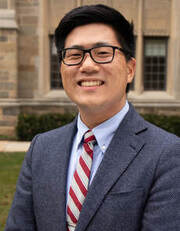
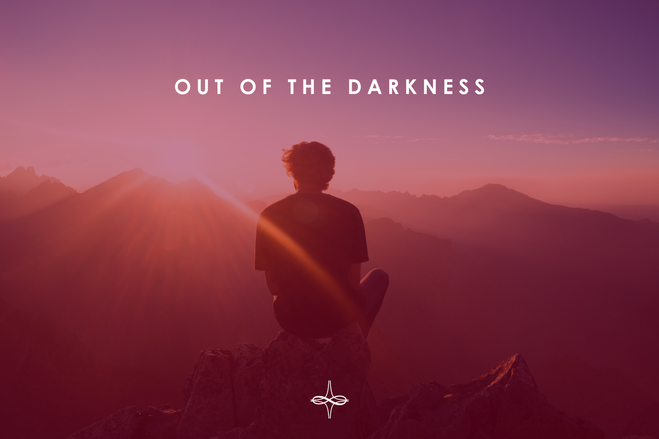
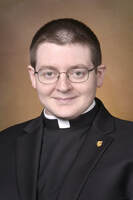
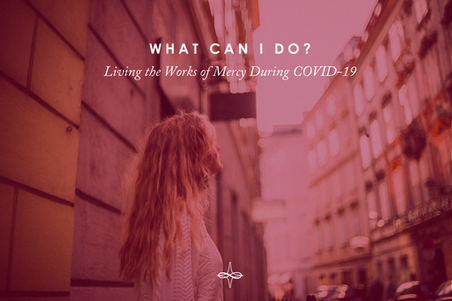

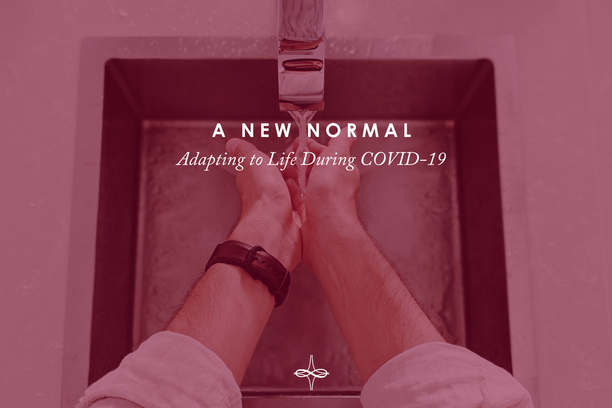
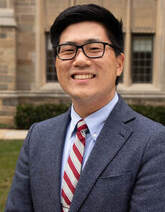
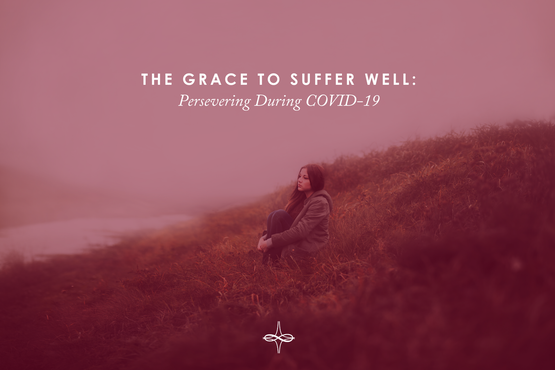

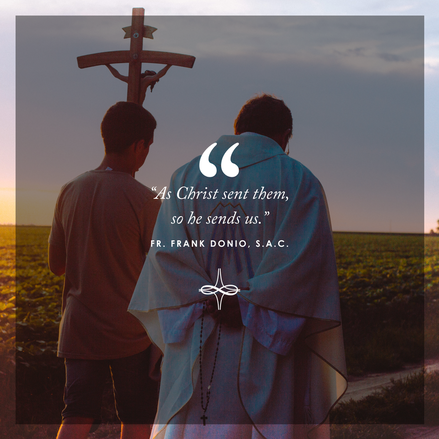
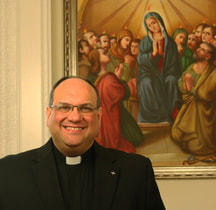
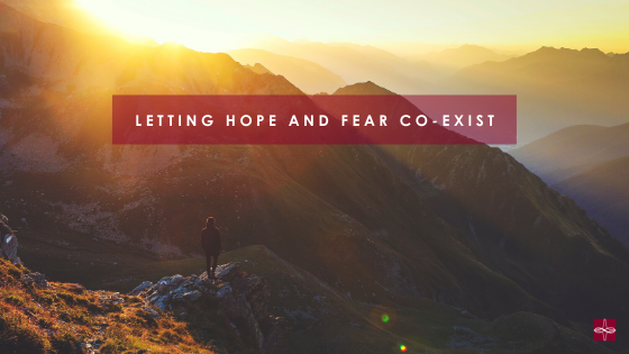

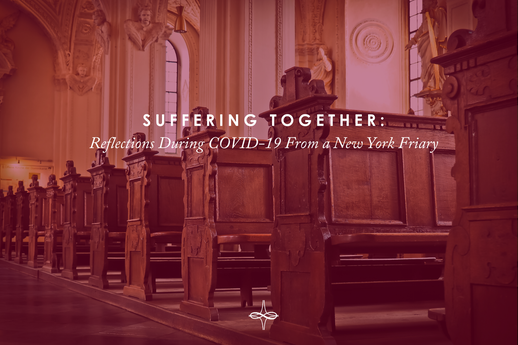
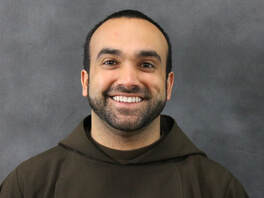
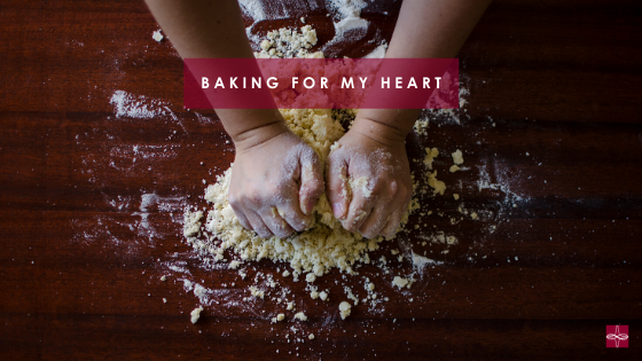

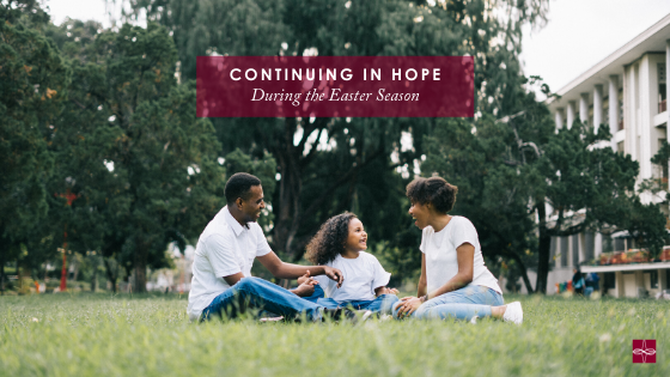
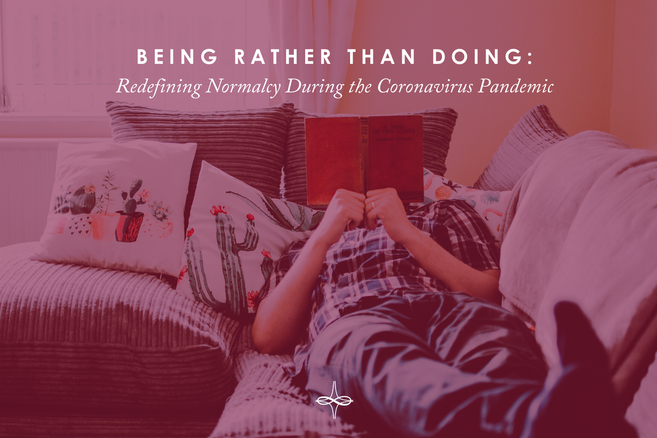

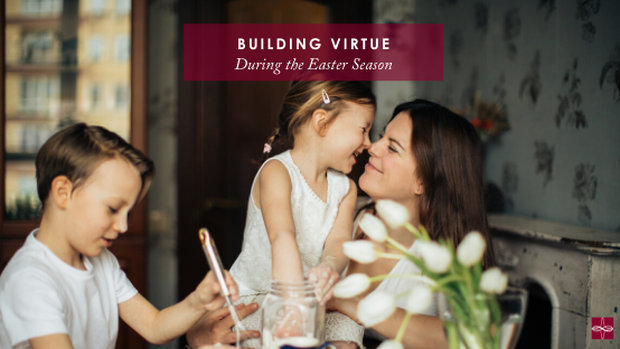

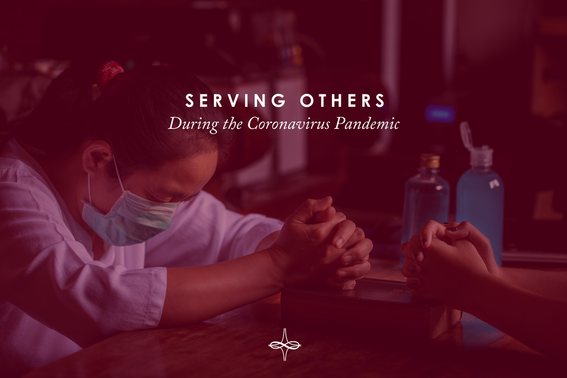

 RSS Feed
RSS Feed